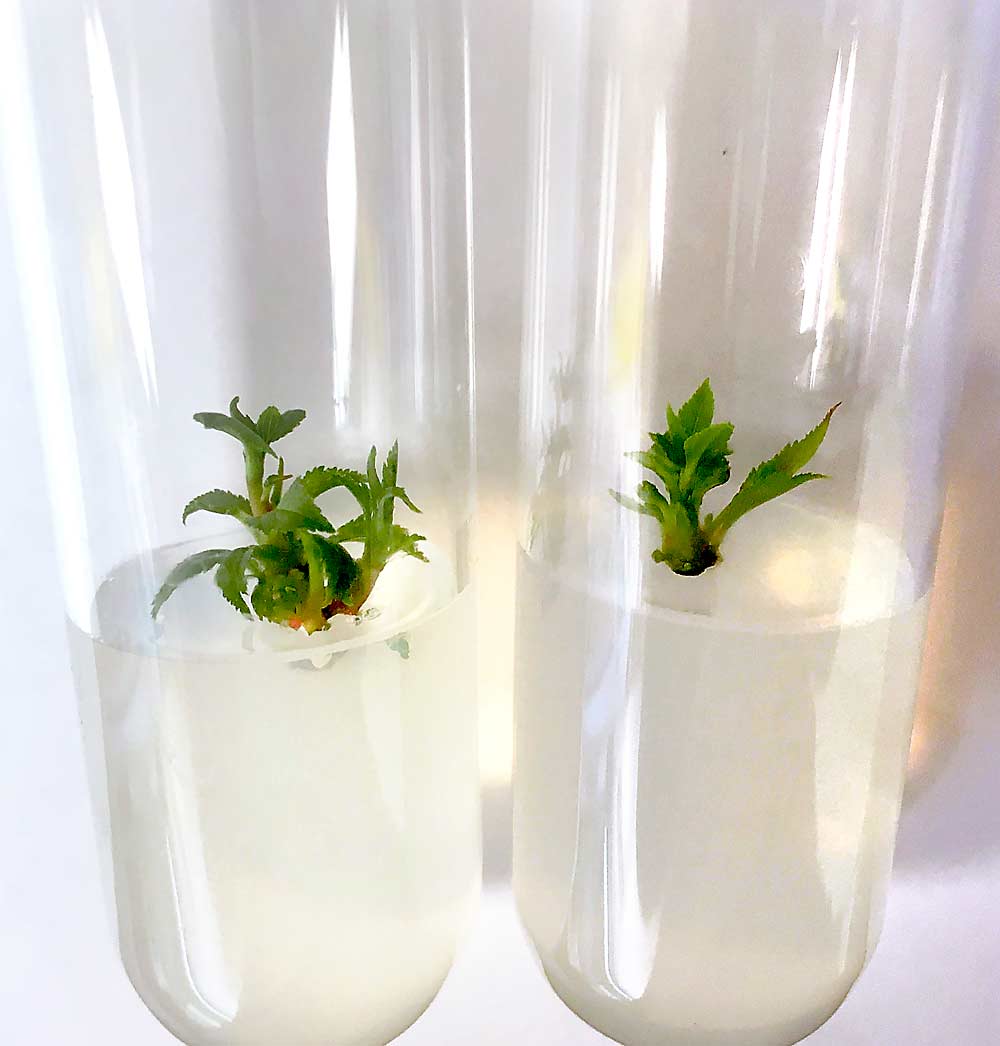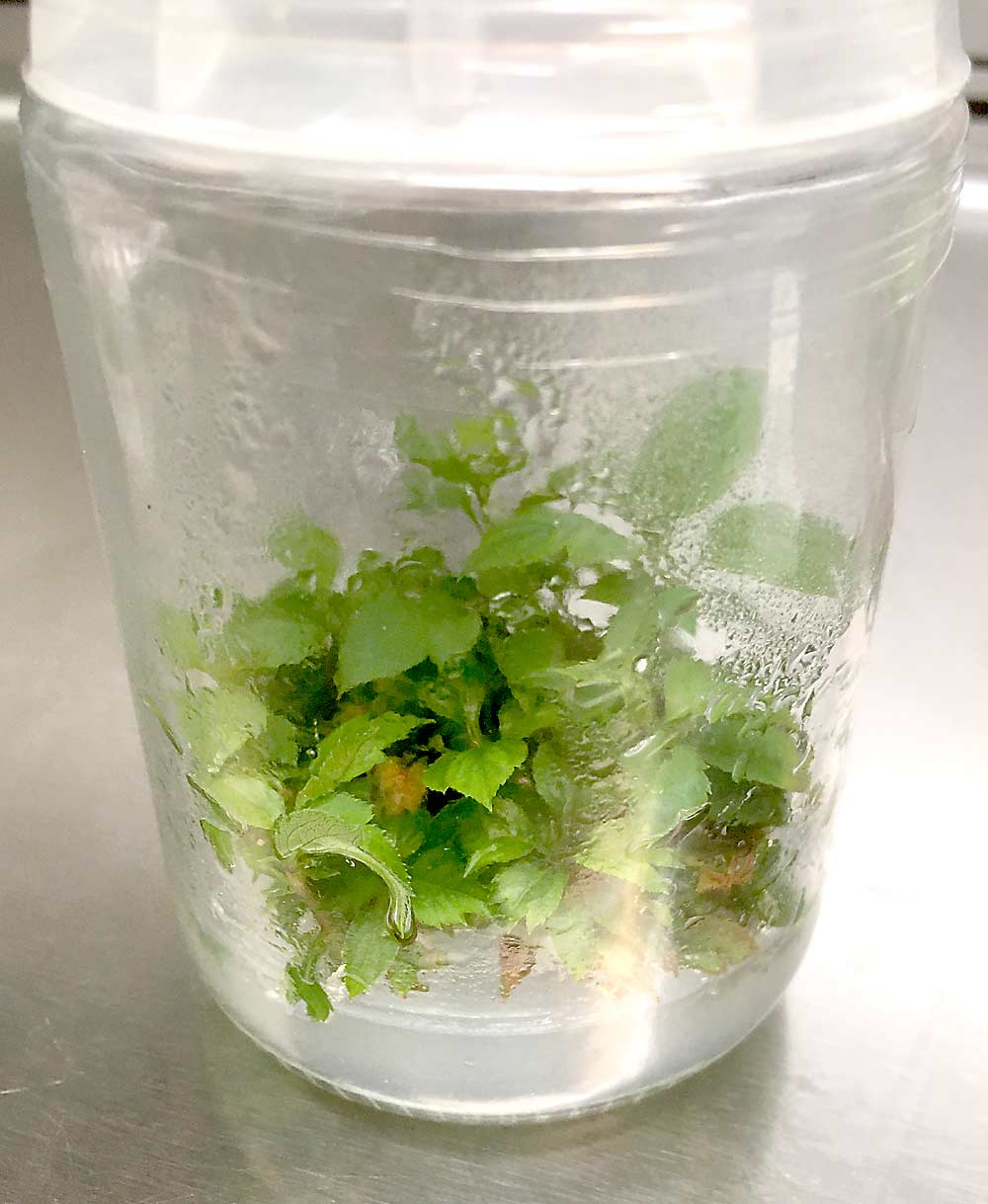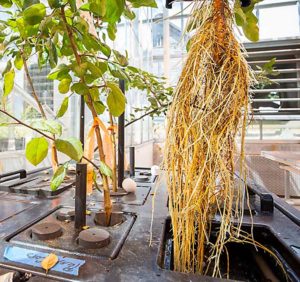
Plant breeders at the U.S. Department of Agriculture’s rootstock breeding program in Geneva, New York, are always seeking to eliminate viruses and viroids from their breeding material, to ensure that the Geneva rootstocks they release in partnership with Cornell University are free of diseases, said Agricultural Research Service geneticist and program leader Gennaro Fazio.
They recently discovered a new tool that will help them in their quest: a combination of extreme heat and extreme cold applications that can fully eliminate apple stem grooving virus and apple chlorotic leaf spot virus, as well as newly discovered infectious agents like apple hammerhead viroid.
These new techniques will help keep Geneva breeding material clean, can be applied at nurseries equipped for tissue culture propagation, and could lead to cleaner plant material in other germplasm collections, Fazio said.
Starting in 2019, Fazio and his research team sent infected tissue cultures of four Geneva rootstocks to Jean Bettoni at the USDA-ARS National Laboratory for Genetic Resources Preservation in Fort Collins, Colorado. (Bettoni is now a scientist with the New Zealand Institute for Plant and Food Research Limited.)
Bettoni’s team tested whether thermotherapy (applying extreme heat via incubator) and cryotherapy (applying extreme cold via liquid nitrogen), alone or in combination, could effectively eradicate apple hammerhead viroid, apple stem grooving virus and apple chlorotic leaf spot virus from the infected tissue cultures. His work showed that thermotherapy and cryotherapy in combination resulted in the highest percentage of virus- and viroid-free rootstocks, Fazio said.

In the apple industry, clean plant centers have practiced thermotherapy in various forms for many years, while tissue culture labs took up the practice more recently. Cryotherapy is a more recent technique in apples, so far used only in research settings, said Stuart Adams, a manager at Willow Drive Nursery who participated in the USDA study.
“If the combination of thermotherapy and cryotherapy does improve the rate of virus elimination, I would hope that the clean plant centers would jump on the technique, as their backlog of material is quite a bottleneck in the industry,” Adams said.
Washington State University’s Clean Plant Center Northwest plans to work with USDA to test cryotherapy applications on Prunus viruses in cherries within the next year or so. If the technique works well enough, the center might include cryotherapy as one of its tools for cleaning plant material, said director Scott Harper.
Currently, the center uses micropropagation and thermotherapy to eliminate pathogens. Cryotherapy has been used in other crop systems for decades, but time and cost has limited its use in tree fruit. And, even a decade ago, it was assumed that thermotherapy was an adequate way to keep plant material clean. However, recent scientific advancements have revealed that thermotherapy doesn’t work well on some pathogens. Because of that, Clean Plant Center Northwest has relied more on micropropagation to eradicate viruses in the past couple of years, Harper said.
After wrapping up the thermotherapy/cryotherapy project, the Geneva rootstock program sent the virus- and viroid-free plant material to micropropagation laboratories at Sierra Gold Nurseries and North American Plants. They hope certified material will be available to the broader nursery industry starting next year, Fazio said.
—by Matt Milkovich







Leave A Comment